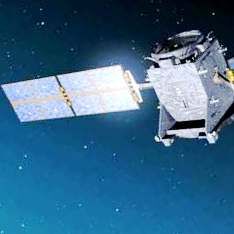
Saving Galileo European Priority
Europe’s answer to the United States’ Global Positioning System (gps), Galileo, is in serious trouble. The project has been plagued by underfunding and infighting among a syndicate of companies that can’t seem to agree on a company structure. In response, the European Union, at German prompting, now plans to bolster the project with more European tax dollars. The EU being willing to pay for Galileo’s high price tag shows how important Galileo is for Europe’s global ambitions.
Thanks to delays and cost overruns, to date Europe has only launched one of Galileo’s 30 satellites. Complicating matters is the fact that Galileo directly competes with free services America offers with its gps. Few are willing to pay for its services. Lacking a financially solvent business model, Galileo’s corporate partners are hestitating to fork over large amounts of money to move the project forward.
But Galileo has never been about building a financially solvent satellite company. No—it has been all about Europe’s ambitions to become a world superpower.
Relying on America’s gps puts Europe in a precarious position. America has the capability to, at any given moment, shut down its gps in any region of the world. Europe is all too aware of its commercial and military dependence. By jumping into the gap created by commercial cold feet, the EU will ensure Galileo is built, both to wean Europe off American technology dependence and deflect any threats to Europe’s superpower ambitions. If Europe can’t coordinate its own military without American satellite technology, it’s not much of a superpower—yet.
When it comes to Galileo, then, failure for Europe is not an option. No matter the price tag—no matter the obstacles.
“There will be greater participation by the public sector in the construction phase of the system,” Wolfgang Tiefensee, the German transport minister, said. Guenter Verheugen, EU enterprise and industry commissioner, also reiterated the call for more public funding of the project. Axing the project, he said, was “out of the question,” adding that, for all its problems, the project is “absolutely essential” for Europe.
Consequently, Galileo’s public price tag has just jumped from €1.5 billion to €3.5 billion.
Europe’s dreams of rising to global superpower status are riding in part on the rockets lifting Galileo satellites into space. Continue to watch for Europe to sandbag the Galileo project in an effort—in which it is prophesied to succeed—to become the world’s mightiest commercial and military empire.
